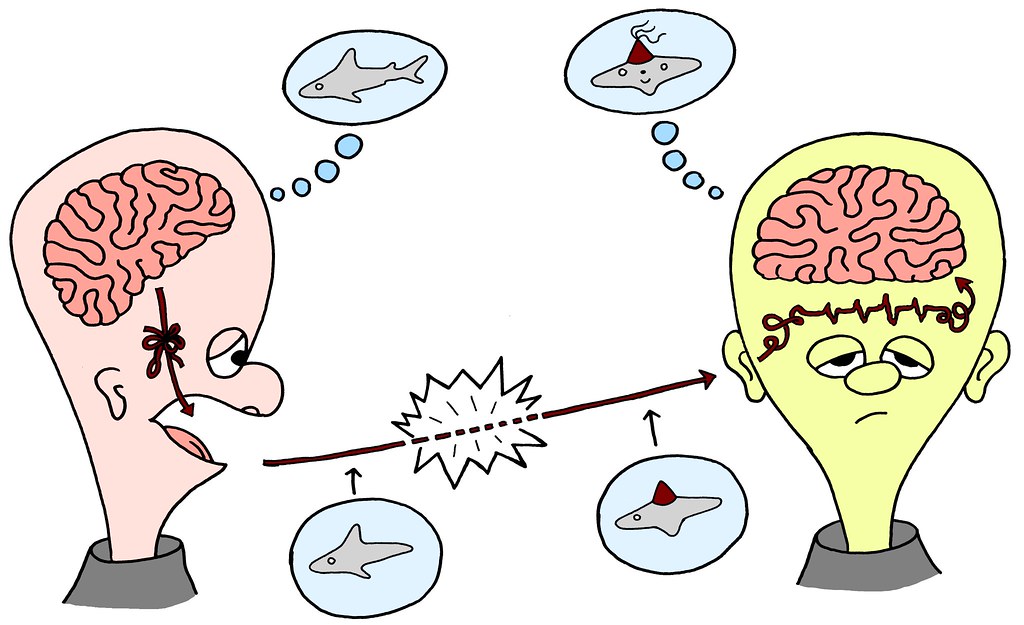
At Me or To Me?
All too often we are far more enthusiastic about talking than we are listening. Yet listening is vital if we are to communicate effectively. Most breakdowns in relationships are caused because people talk at each other not to each other. How does such a little word cause so much damage?!
When we are actively listened to, we feel valued and are far more likely to engage in negotiation and compromise.
Listening is about far more than words. Watching facial expression and body language is often a far more accurate barometer of what's going on than the words that are being used. An example is you hearing nice things being said but the smile doesn't reach the eyes.
Make Eye Contact - Then Relax
Read the body language of the talker. Are they relaxed, anxious, angry? Extremes are easy to recognize but often the message is much more subtle.
Mirror the talker's body language
Subtle and small motions here work best. This is a gentle dance rather than a caricature. Show that you are listening by a nod or ask a better question, or ask them to clarify if you are not clear about their meaning such as, 'So what you are saying is... '
Ask a better question
Start with who, what, where, or when. This will help you to form a question. Be careful of the tone of your voice when you respond or ask questions. It is all too easy to come across as judgmental or as an interrogator from the Spanish Inquisition if you're not present and in the moment.
Be Empathetic
If you feel sad when the person with whom you are talking expresses sadness, joyful when she expresses joy, fearful when she describes her fears-and convey those feelings through your facial expressions and words-then your effectiveness as a listener is assured. Empathy is the heart and soul of good listening.
To experience empathy, you have to put yourself in the other person's place and allow yourself to feel what it is like to be her/him at that moment. This is not an easy thing to do. It takes energy and concentration. But it is a generous and helpful thing to do, and it facilitates communication like nothing else does. Acknowledge the person by saying- 'oh I'm sorry to hear that.' Be careful not to fall into the trap of going into anecdotes from your experience, though. Say "I get the feeling that you're upset, how I can help?' rather than "Oh I know how you feel because the same thing happened to me! But wow mine was bigger, more difficult etc.'
Take a genuine interest
If you're simply going through the motions the lack of sincerity will be obvious to others. Leave your ego behind and have your full attention on the other person.
Don't interrupt or offer Solutions
When I was growing up I was taught that it's rude to interrupt. I'm not sure that message is getting across anymore! Certainly the opposite is being modeled on the majority of talk shows and reality programs, where loud, aggressive, in-your-face behavior is condoned, if not encouraged.
Interrupting sends a variety of messages. It says:
· "I'm more important than you are."
· "What I have to say is more interesting, accurate or relevant."
· "I don't really care what you think."
· "I don't have time for your opinion."
· "This isn't a conversation, it's a contest, and I'm going to win."
We all think and speak at different rates. If you are a quick thinker and an agile talker, the burden is on you to relax your pace for the slower, more thoughtful communicator-or for the employee who has trouble expressing himself.
When listening to someone talk about a problem, refrain from suggesting solutions. Most of us don't want your advice anyway! If we do, we'll ask for it. Most of us prefer to figure out our own solutions. We need you to listen and help us do that. Somewhere way down the line, if you're absolutely bursting with a brilliant solution, at least get the speaker's permission. Ask, "Would you like to hear my ideas?"
http://ezinearticles.com/?7-Golden-Keys-to-Listening&id=9368253

No comments:
Post a Comment